Allahummaghfirli Warhamni Wahdini Warzuqni Dua Meaning, Arabic, and Hadith
Advertisements
Allahummaghfirli Warhamni Wahdini Warzuqni is a beautiful and comprehensive dua, filled with hope that the Prophet (SAW) used to recite between the two prostrations (sujood).
This dua asks of Allah for courage and strength, for wealth and good provision, and for his guidance and blessings.
Allahummaghfirli Warhamni Wahdini Warzuqni Meaning In English
The allahummaghfirli warhamni wahdini warzuqni dua means O Allah! Forgive me, have mercy on me, guide me, guard me against harm and provide me with sustenance and salvation.
Allahummaghfirli Warhamni Wahdini Warzuqni In Arabic
In arabic text the Allahummaghfirli warhamni is written as,
اَللَّهُمَّ اِغْفِرْ لِي , وَارْحَمْنِي , وَاهْدِنِي , وَعَافِنِي , وَارْزُقْنِي
Advertisements
Transliteration
Allahummaghfir li, warhamni, wa-hdini, wa ‘afini, warzuqni.
Hadith Related To Allahummaghfirli Warhamni Dua
Narrated Ibn ‘Abbas (RA):
The Prophet (SAW) used to say between the two prostrations: “Allahumma ighfir li, warhamni, wahdini, wa ‘afini, warzuqni (O Allah, forgive me, have mercy on me, guide me, grant me health and well-being, and provide sustenance for me).”
[Reported by al-Arba’a except An-Nasa’i, and this is the wording of Abu Dawud. Al-Hakim graded it Sahih (authentic)].
Tang bin Ashyam reported: Whenever a man entered the fold of Islam, the Prophet SAW would show him how to perform Salat and then direct him to supplicate: “Allahumm-aghfir li, warhamni, wa-hdini, wa ‘afini, warzuqni (O Allah! Forgive me, have mercy on me, guide me, guard me against harm and provide me with sustenance and salvation).
Muslim
- Read also Allahumma Aslih Li Deeni
- Allahumma Inni A Udhu Bika
- Allahumma Innaka Afuwwun Tuhibbul Afwa.
Allahummaghfirli Warhamni Wahdini Warzuqni Explanation
Whenever a man embraces Islam, the Prophet SAW would teach him how to perform Salat.
This is because Salat is the most important pillar of Islam after the two testimonies of faith.
Advertisements
The pillars of Islam are five:
- The testimony that none has the right to be worshipped in truth except Allah and Muhammad is His Messenger,
- Establishment of Salat,
- Payment of Zakat,
- Fasting in Ramadan and
- Pilgrimage at Allah’s sanctified House.
The greatest pillar after testifying that none has the right to worship except Allah and Muhammad is His Messenger is the Salat.
So, whenever a person enters the fold of Islam, the Prophet SAW would show him how to perform Salat and then direct him to supplicate with this statement: Allahumma-agfir li wa-rhamni wa-hdini wa-’afini warzuqni (“O Allah! Forgive me, have mercy on me, guide me, guard me against harm and provide me with sustenance and salvation.
Allahummaghfirli Meaning
Allahummaghfirli Means O Allah! Forgive me that is, forgive me of my sins.
When a disbeliever becomes a Muslim, Allah, the Mighty and Sublime, would forgive all his sins as He, the Exalted, said:
Say to those who have disbelieved, if they cease from (disbelief)their past will be forgiven…”
(Surah Al-Anfaal verse 38).
Irrespective of that, seeking for forgiveness is expected after embracing Islam, he needs to seek for forgiveness.
In fact, every Muslim needs to seek for forgiveness because no one is completely free from sins as reported in the hadeeth that:
The best of those who commit sin are those who regularly repent.
Have mercy on me: that is, shower your mercy on me.
Thus, there is salvation from evils, sins and punishments in seeking for forgiveness, and in seeking for mercy is achieving the desired things.
This is because a persons affair will not be complete unless he is saved from the dreaded and attains the desired.“
Guide me: we have earlier explained that the meaning of guidance the guidance of knowledge and understanding and the guidance of attainment and rationality.“
Guard me” from every ailment. There are two types of diseases:
Disease of the heart, as stated by Allah, the most High:
“In their hearts is a disease (of doubt and hypocrisy) and Allah has increased their disease”
(Surah Al Bakara 2 verse10),
The second type of disease is physical ailment, which affects the limbs and body.When you ask Allah, the Mighty and Sublime, for well-being, it entails safety from both forms of diseases.
The disease of the heart is worse than the disease of the body.
If one is patient over the disease of the body, and hopes for reward from Allah, the Mighty and Sublime, it becomes a source of upsurge in his ranks, obliteration of his sins,and the ailment ends with death.
Death is the end of every living thing, there is no way out.
However, the disease of the heart, and refuge is sought with Allah, corrupts this world and the hereafter. If a heart is contaminated with doubt, associating partners with Allah, hypocrisy, hatred of what Allah has revealed and disdain for some of the intimate friends of Allah and others, such a person is a looser in this life and the hereafter.
Hence, it is important for you to bring to mind whenever you ask Allah, the Mighty and Sublime, for protection that you are asking Him for safety from the diseases of the heart and the body; and the diseases of the heart revolves around doubt, associating partners with Allah or base desires.
Similarly, the author of Riyadus Saliheen, may Allah shower blessings on him – mentioned in the other version that a man asked the Prophet SAW for that which will benefit and suffice him.
So, the Prophet SAW commanded him to supplicate with this expression:
O Allah! Forgive me, have mercy on me, protect me, guide me and provide me with sustenance.
Provide me with sustenance that is, provision which sustains the body such as food, drink, clothing, shelter and others, and the provision which sustains the mind such as beneficial knowledge and righteous deeds.
This supplication encompasses both forms of sustenance.
There are two types of provison: that which sustains the body and that which sustains the mind.
So when one says, “provide me…”, he is beseeching Allah for both forms.
As such, it is important that one adheres to these supplications which the Prophet SAW taught his Ummah and which he would quickly teach a new Muslim.
Allah alone, grants success.
Asking God for forgiveness, which is the erasure of sins, and the concealment of sins from people.
His saying: And have mercy on me: That is, have mercy on me, for in it is asking God for mercy, which requires the succession of good deeds, righteousness, benevolence, and blessings.
His saying: and heal me: that is, deliver me from all evils, temptations, and deliverance from calamities and tribulations in religion, this world and the hereafter.
His saying: And provide for me: Give me what will benefit me in a generous giving, which will suffice me from others, from the lawful sustenance that I use to meet the required costs of spending on the family, the child, the poor and so on.
And grant me knowledge, faith and certainty, and the latter is the best kind of sustenance that benefits the servant in this world and the hereafter, as was the supplication of the Prophet, may God’s prayers and peace be upon him: ((…and grant me knowledge with which you will benefit me.
His saying: And guide me: Guide me and guide me to the truth in which the situation and the money will be correct, until I reach the doors of happiness in this world and the Hereafter.
Guidance is two gifts: as before the guidance of knowledge and clarification, and the guidance of Tawfiq and guidance, the servant asks them of his Lord, the Mighty and Sublime.
His saying: And raise me [asked Allah] to raise his status in this world and the hereafter.
To omit the effect that benefits the general public, in this world there is an elevation of status from good praise, acceptance with people, elevation in knowledge and destiny, and in the Hereafter in lofty ranks in the highest heavens.
Advertisements

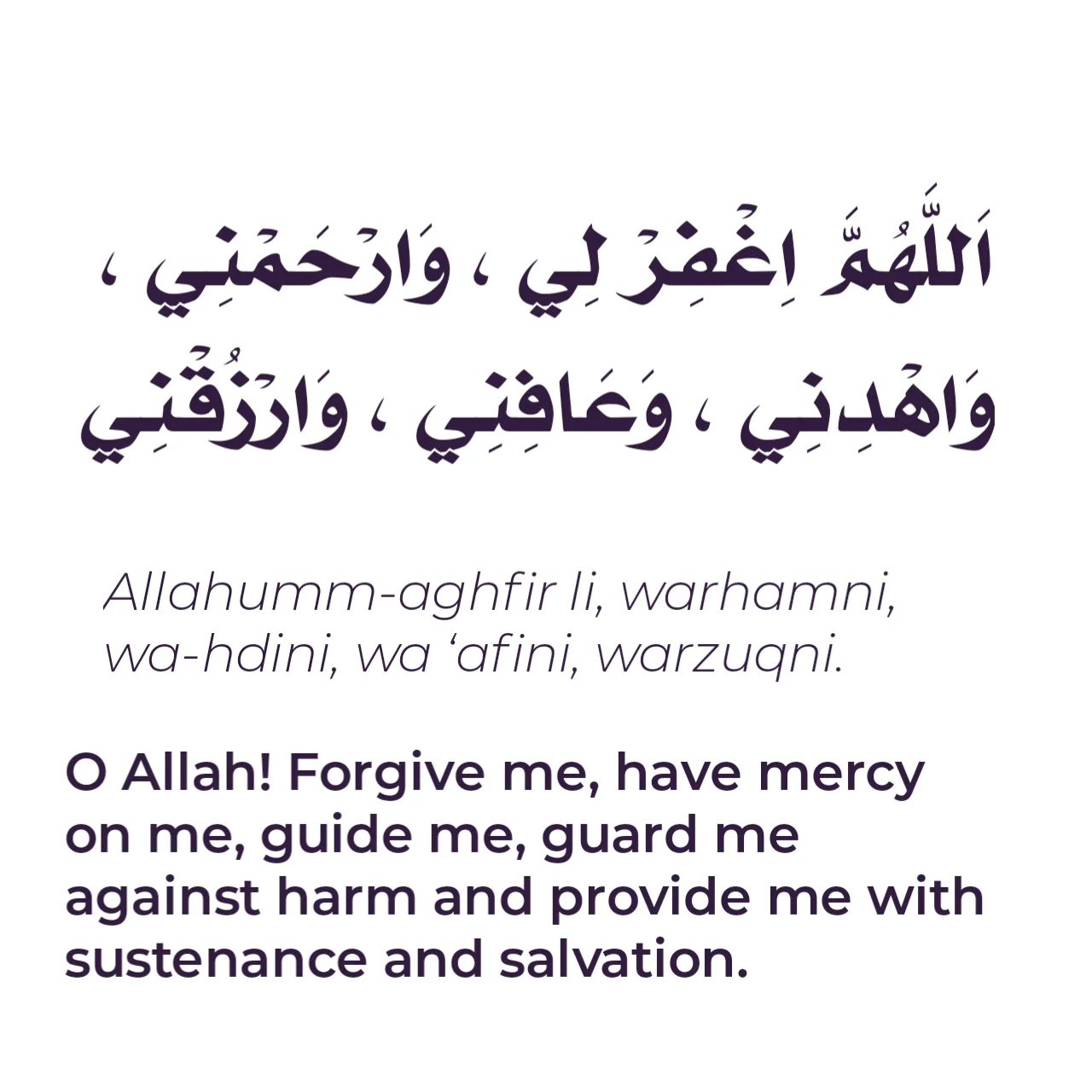

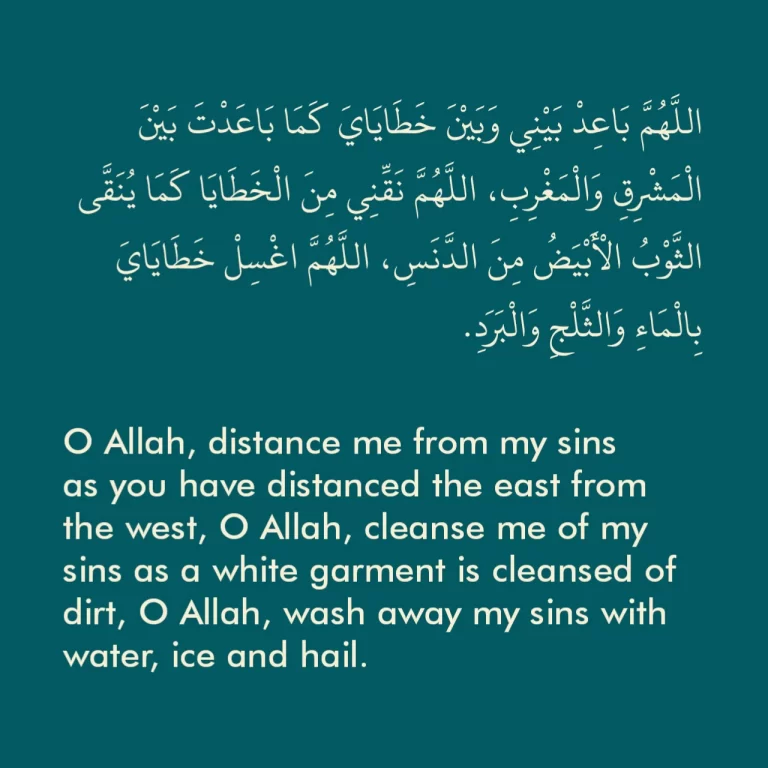
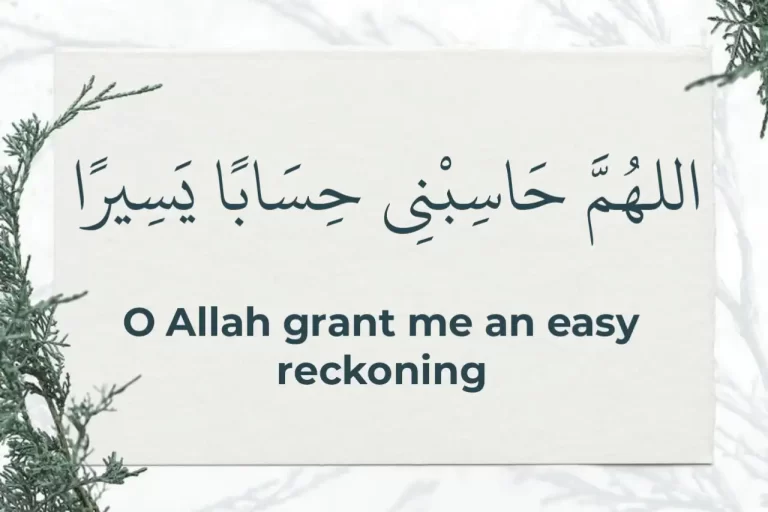

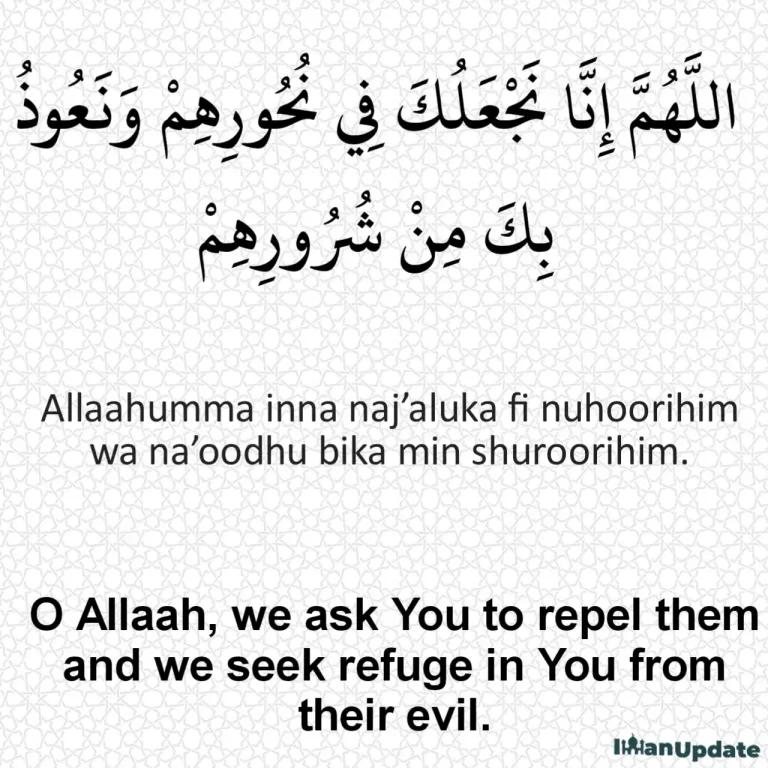
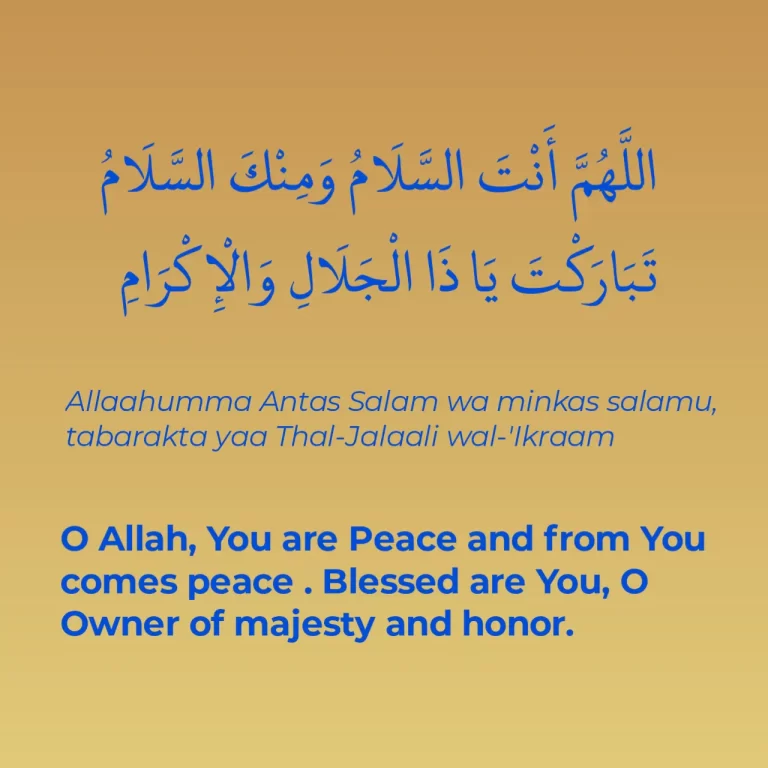
One Comment